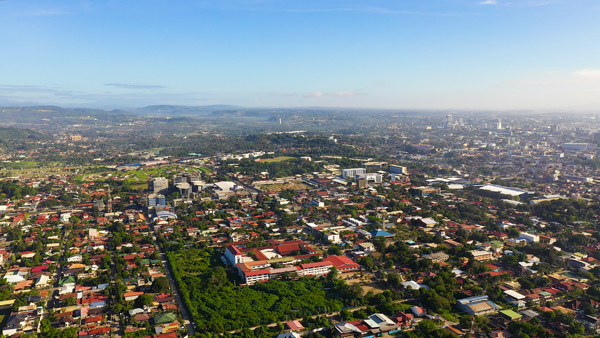
Known for its tropical charm, low cost of living, and friendly locals, Davao City in the Philippines has become a popular destination for international retirees. The city offers a unique blend of urban convenience and rural tranquility, making it an ideal place for those seeking a relaxed and comfortable retirement. However, like any other place, retiring in Davao also comes with its own set of challenges. This article will delve into the various aspects of retiring in Davao, from the cost of living to the local culture, to help you get a better understanding of what life is like in this tropical paradise.
Affordable Lifestyle
The cost of living in Davao is significantly lower compared to many Western countries. This affordability extends to everything from housing and utilities to food and healthcare. For instance, a comfortable two-bedroom apartment in a good neighborhood can be rented for as low as $200 per month. Dining out is also quite affordable, with a meal at a mid-range restaurant costing around $5. However, it’s important to note that while the cost of living is low, the average local income is also quite low, which can lead to a higher poverty rate and associated issues.
Tropical Climate
Davao enjoys a tropical rainforest climate, with a good amount of sunshine throughout the year. The city experiences two seasons: a dry season from December to May and a wet season from June to November. The average temperature ranges from 24°C to 32°C, making it a perfect destination for those who enjoy warm weather.
Healthcare Facilities
Davao is home to several top-notch hospitals and clinics, offering a wide range of medical services at affordable prices. The Davao Doctors Hospital and the Southern Philippines Medical Center are among the most reputable healthcare facilities in the city. However, it’s worth noting that while the quality of healthcare is generally good, it may not be up to the standards of more developed countries.
Public Healthcare System
International retirees can avail of the Philippines’ public healthcare system, PhilHealth, by becoming a voluntary member. The annual premium for foreign retirees is around $300, which covers a significant portion of hospitalization and medical expenses. However, many retirees opt for private health insurance for more comprehensive coverage.
Residency Options
The Philippines offers a Special Resident Retiree’s Visa (SRRV) for foreign retirees, which grants multiple-entry privileges and indefinite stay in the country. To qualify for the SRRV, retirees must be at least 50 years old and have a monthly pension of at least $800 for a single applicant or $1,000 for a couple.
Outdoor Activities and Dining
Davao offers a plethora of recreational activities, from exploring the stunning Eden Nature Park to visiting the Davao Crocodile Park. For food lovers, Davao is a gastronomic paradise, with popular restaurants like Claude’s Le Cafe de Ville and Jack’s Ridge offering a mix of local and international cuisines.
Language Learning
While English is widely spoken in Davao, learning the local language, Cebuano, can enhance your experience. The University of Southeastern Philippines offers language courses for foreigners.
Local Culture
Davaoeños are known for their warm hospitality and friendly nature. The city has a laid-back vibe, with locals leading a slow-paced, relaxed lifestyle. Davao also has a vibrant local market scene, with the Bankerohan Public Market being a popular spot for fresh produce and local delicacies.
Meeting People and Volunteering
Meeting new people in Davao is easy, thanks to the city’s welcoming locals and active expat community. There are also numerous volunteer opportunities available, with organizations like the Davao Eagle Foundation and Love the Children Foundation always in need of helping hands.
Housing Options
Most retirees in Davao opt for condominiums or apartments in the city center for convenience. However, for those seeking a quieter lifestyle, there are also plenty of houses available in the outskirts of the city.
Transportation
Davao has a well-developed public transportation system, with jeepneys and taxis being the most common modes of transport. The city is also quite walkable, with many amenities within walking distance in the city center. However, owning a car can be beneficial for those living outside the city center or for those who frequently travel to other parts of the country.
Retirees Talk about Retiring in Davao
“Recreation is great for me as I am a swimmer. Nightlife is mostly at Hot Legs bars which offer temptations which are not supportive of my fidelity to my wife. A night out is mostly people watching or a restaurant meal,” commented an expat living in Prudential Village, Daliao, Davao City.
“The lack of infrastructure, heat & humidity, stark grinding poverty, and the increase of price for Westerners,” said one expat living in Prudential Village, Daliao, Davao City.
“An affordable 2 bedroom home 5 minute walk to the beach. Very minimal property tax. Cheap transportation and food costs. Friendly people. Loving wife. Not having cloudy, wet & cold weather. Not having to shovel snow and ice and pack firewood for my wood stove,” commented an expat living in Prudential Village, Daliao, Davao City.


